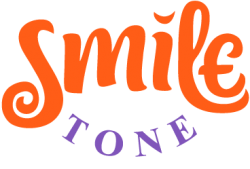Myofunctional Therapy
Our myofunctional therapy programs help to create better habits for better health...for life.
Myofunctional therapy is available to people of all ages and is designed to correct orofacial muscle dysfunction using regular exercises and reminder techniques. This help to retrain the tongue, lips, cheeks, jaw, throat and facial muscles to function properly during chewing, swallowing and especially at rest. During the day and while sleeping, the ideal orofacial posture consists of the lips being together, breathing through the nose, tongue lightly suctioned up in the palate and teeth slightly apart...what is your oral rest posture like right now?
After an initial assessment is conducted, a program is tailored to suite your needs, but usually aims to:
- Reinforce and establish a resting posture of the tongue away from the teeth, against the hard palate
- Establish appropriate oral, lingual, and facial muscle patterns that promote correct gestures for chewing and eating
- Retrain oral, lingual, and facial muscles to facilitate correct resting posture of tongue, lips, and jaw
- Establish mature swallowing patterns
- Prevent relapses after orthodontic treatment
- Improve relationship between dental arches; reduce open bite and over-jet
- Improve nasal breathing patterns
- Maintain overall facial muscle tone needed for ideal chewing, swallowing, and speech function
- Create an oral environment that creates favourable conditions for development and position of teeth
- Eliminate open-mouth posture
- Eliminate dry mouth condition or xerostomia
- Improve and enhance oral hygiene
- Eliminate thumb/finger sucking behaviours to facilitate normal growth of the palatal arch
Common causes of orofacial myofunctional disorders (OMDs)
- Airway problems - enlarged adenoids, tonsils and turbinates; allergies; narrow/high palate; underdeveloped jaws
- Nutrition and lifestyle - increased stress; hurried lifestyle - altered mealtime practises; sedentary lifestyle; poor posture
- Developmental influence - tongue or lip tie; cleft palate; low muscle tone
- Feeding practices - bottle feeding; soft food diet; sippy cups
- Habits - thumb/finger sucking; lip licking; lip trapping; dummy use
- Injury - burns; trauma; stroke; facial paralysis
Untreated OMDs may lead to:
- Crooked teeth/small sized jaws, open bites, cross bites, over jet, crowding
- Abnormal eruption of teeth and altered jaw shape and sizes
- Abnormal tone and movement of facial muscles
- Prolonged meal times and preference for soft diet
- Fussy or messy eating, belching
- Tummy pains, poor digestion/gut health
- Poor general posture
- Altered speech sounds
- Asymmetry facial appearance and movement
- Poor sleep - obstructive sleep apnoea, snoring, upper airway resistance syndrome, mouth breathing
- Teeth grinding, clenching, head and jaw pain
- Behavioural changes - ADHD (poor sleep)
- Oral habits - chewing shirt collars, nail biting etc

